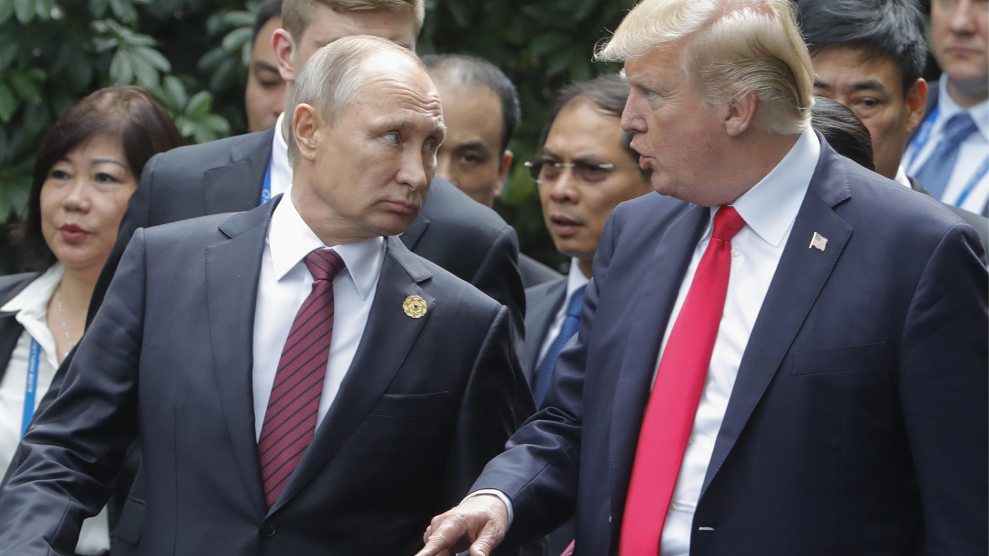
Metzel Mikhail/TASS/Zumapress
On Monday, the Trump administration ordered the expulsion of 48 Russian diplomats and 12 Russian intelligence officers stationed in New York and Washington, DC. The move—the largest expulsion of this kind in US history—came as 14 European nations announced their own expulsions of Russian diplomats, in response to the poisoning of former Russian spy Sergei Skripal and his daughter Yulia earlier this month in Salisbury, England using a powerful Soviet-era nerve agent. The Trump administration also announced that it will require Seattle’s Russian consulate to close by April 2, in part due to the consulate’s proximity to Boeing and a US submarine base.
“We take these actions to demonstrate our unbreakable solidarity with the United Kingdom, and to impose serious consequences on Russia for its continued violations of international norms,” State Department spokesperson Heather Nauert said in a statement.
The Russian ambassador to the United States, Anatoly Antonov called the move “a very bad step” that is “cutting what very little still remains in terms of Russian-American relations.” He added: “I’m sure time will come when they will understand what kind of grave mistake they did.”
The coordination of expulsion announcements between the US and Europe adds a level of severity to this move. The last time the US and Europe coordinated a wave of Russian diplomat expulsions was in 2014, following Russia’s annexation of Crimea from Ukraine.
The move is also a stark contrast from President Donald Trump’s actions last week. During a phone call, Trump congratulated President Vladimir Putin on his victory in Russia’s March 18 presidential election. This move went against the explicit advise of his national security team, which had told him not to congratulate Putin on his re-election victory, given broad reports of vote tampering and ballot stuffing in Russia. On Monday, Antonov said that telephone conversation between the presidents had led Russian diplomatic staff to believe that the two countries could take “constructive actions” towards each other.
















